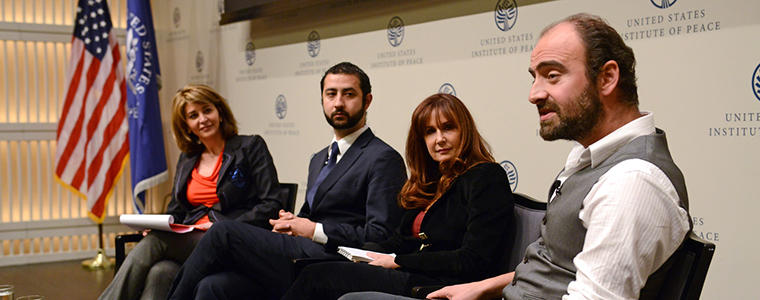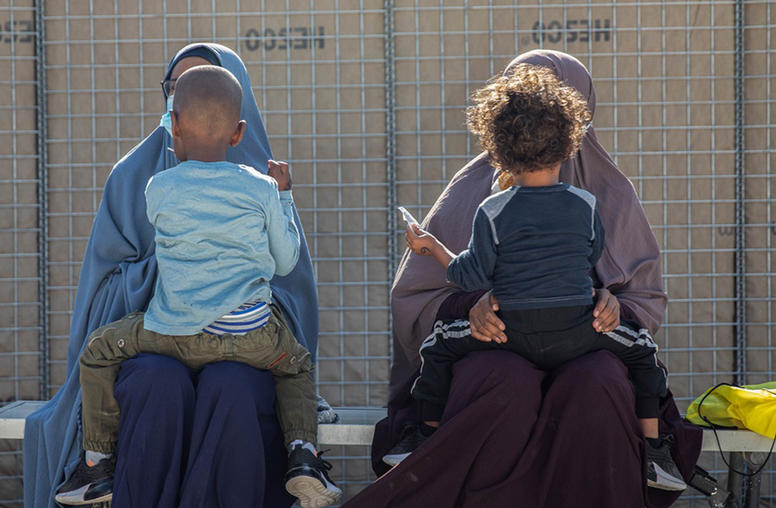Film Screening: Red Lines
Directed by Andrea Kalin and Oliver Lukacs
The United States Institute of Peace and SparkMedia hosted a screening of Red Lines, the story of two young unlikely Syrian activists who, in 2012, launch a radical plan to bring democracy to their country, besieged by the brutal regime of Bashar al-Assad.

Red Lines directors Andrea Kalin and Oliver Lukacs provided cinematic boots on the ground, offering a rare window into the Syrian conflict. Along the way, they took us from the trenches to geopolitical jockeying, and provide a searing expose of an inhumane crisis that goes on, even as the two young activists fight for its end with conscience, technology and an inspired blueprint for better days.
Under threat of death and armed only with the Internet, they organize when no one else will. University student Razan and Damascus-born Mouaz, now working as an activist in Washington, DC, navigate a minefield in Syria, facing agonizing decisions of who to support and who to trust, all while hatching a Trojan-horse plan for a democratically run Syria starting with one free, empowered village and spreading from there. But when the Assad regime redoubles its attacks on civilians with tactical starvation, barrel bombs and even chemical warfare, hope suffers crushing casualties.
Following the screening, there was a musical performance by one of the film’s composers, Kinan Azmeh, and a panel discussion with the directors and activists featured in the film.
Speakers
Andrea Kalin
Director, Red Lines
Founder, Spark Media
Oliver Lukacs
Director, Red Lines
Razan Shalab al-Sham
Field Director, Syrian Emergency Task Force
Mouaz Moustafa
Executive Director, Syrian Emergency Task Force
Honey Al Sayed, Moderator
Host and Producer, Radio Souriali
Co-Founder, RO’YA Association
Kinan Azmeh
Virtuoso Clarinetist; and
Lubana al-Quntar
Syrian Opera Singer



